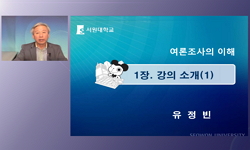Political parties would normally claim that their campaign and communication materials have effects on voters, be it on their supporters or their opponents during election campaigns. However, such effects are assumed effects by the parties unless vote...
http://chineseinput.net/에서 pinyin(병음)방식으로 중국어를 변환할 수 있습니다.
변환된 중국어를 복사하여 사용하시면 됩니다.
- 中文 을 입력하시려면 zhongwen을 입력하시고 space를누르시면됩니다.
- 北京 을 입력하시려면 beijing을 입력하시고 space를 누르시면 됩니다.
https://www.riss.kr/link?id=A101688064
- 저자
- 발행기관
- 학술지명
- 권호사항
-
발행연도
2014
-
작성언어
English
- 주제어
-
등재정보
KCI등재,SCOPUS
-
자료형태
학술저널
-
수록면
307-344(38쪽)
- 제공처
-
0
상세조회 -
0
다운로드
부가정보
다국어 초록 (Multilingual Abstract)
Political parties would normally claim that their campaign and communication materials have effects on voters, be it on their supporters or their opponents during election campaigns. However, such effects are assumed effects by the parties unless voters are themselves assessed about the effects of such materials on themselves. The supporters of the parties are likely to regard such campaign materials as congenial to them but this may not be so with the opposition supporters who would regard such materials as negative. Taking the third-person effect to analyze effects on the audience as the theoretical framework, this study posited that opposition members would regard the materials as negative and thus would claim that they would not have any effect on them but they would likely say that such campaign materials would have effects on own party supporters. Davison (1983) posited that individuals will perceive that negative mediated messages would have their greatest impact not "on me" or "you" but on "them,"- the third person. Research suggests that people judge others to be more influenced than they are by media, advertising, libelous messages, media violence, pornography, and television drama. The theory referred to as the Third-person effect developed on the postulation that audience members would not admit that media had any direct effect on them, but would instead believe that the media influenced others, the third person (Tewksbury, Moy, & Weis, 2004; Price, Tewksbury, & Huang, 1998). On the other hand, while people would discount the effects of negative or biased messages on themselves, they would, under the notion of the First Person Effect, readily admit to being influenced by such messages. This study was based on studying the effects of political literature on party and opposition party supporters taking the messages to be positive to one group and biased and partisan to another group. The study focuses on the assumed effects of political literature on own party and opposition party supporters. It traces the degree of influence of Malaysia's largest political party, Barisan Nasional (BN) political communication literature on its own supporters and on non-BN party supporters. While the third-person effect assumes a null or minimal effect on one's self and some or strong effect on others, the question that arises are on welcoming favorable media effects on oneself and assuming unfavorable effects on others.
동일학술지(권/호) 다른 논문
-
- Center for Asian Public Opinion ResearchCollaboration Initiative
- Bofei, Zheng
- 2014
- KCI등재,SCOPUS
-
How Facebook Functions in a Social Movement: An Examination Using the Web Mining Approach
- Center for Asian Public Opinion ResearchCollaboration Initiative
- Cao, Wenny
- 2014
- KCI등재,SCOPUS
-
Involvement of Social Media in Disaster Management during the Wenchuan and Ya'an Earthquakes
- Center for Asian Public Opinion ResearchCollaboration Initiative
- Li, Leah Xiufang
- 2014
- KCI등재,SCOPUS
-
Predicting Media Credibility in China: The Influence of Weibo Use
- Center for Asian Public Opinion ResearchCollaboration Initiative
- Shen, Fei
- 2014
- KCI등재,SCOPUS







 ScienceON
ScienceON






